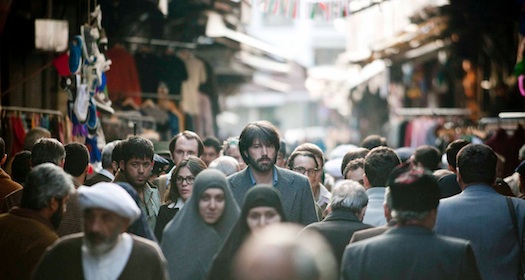


Forget what movie you actually liked. And forget the experts. The hot new way to predict winners is by using quantifiable data and rigorous statistical analyses. As one quantitative Oscar-predictor wrote in the Huffington Post, “This method is entirely mathematical: no personal hunches are taken into account.” A little impersonal, but hey. This is life in the Nate Silver era. Herewith is our guide to some of the top mathematical models for predicting the Oscars:
PredictWise
Who
PredictWise is run by David Rothschild, an economist now with Microsoft Research.
How it works
PredictWise’s Oscar projections combine data from several prediction markets, as well as data gathered from a game people can play to help with Rothschild’s research. PredictWise’s political forecasts use some numbers that don’t apply to the Oscars, such as past election results and the state of the economy.
Past performance
Rothschild correctly predicted 50 out of 51 jurisdictions (the 50 states plus Washington, DC) in last year’s election, but he doesn’t seem to have tackled the Oscars before.
The predictions
Argo for best picture, Steven Spielberg (Lincoln) for best director, Daniel Day-Lewis (Lincoln) for best actor and Jennifer Lawrence (Silver Linings Playbook) for best actress. See the rest here.
Ben Zauzmer
Who
Zauzmer is a Harvard sophomore who blogs for the Huffington Post.
How it works
Zauzmer’s model uses critics’ scores, other award shoes and guild awards from the past 15 years, he wrote in the Huffington Post.
Past performance
Last year, of the 20 categories for which Zauzmer offered a prediction, he was correct for 15, including popular categories such as best picture, best director, best actor and best actress.
The predictions
Argo for best picture, Ang Lee (Life of Pi) for best director, Day-Lewis for best actor and Lawrence for best actress. See the rest here.
Peter Gloor
Who
Gloor is a researcher at MIT who studies the wisdom of the crowd in projects such as Wikipedia.
How it works
Gloor runs a statistical analysis on data that include some of the prediction markets PredictWise uses. His analysis also takes into account IMDb comments; however, unrelated comments such as those about actors’ dating lives give the model trouble, Gloor told Vanity Fair.
Past performance
Last year, Gloor’s model correctly pinned the best picture and best director wins, as well as 70 percent of the acting categories.
The predictions
Sadly, Gloor and his students didn’t submit predictions for this year, as they’re too involved in other projects.
The Social Oscars
Who
The Motion Picture Association of America apparently wanted in on the game. The association hired a data scientist, Edward Crook, to put together quantitative measures of public opinion, as culled from the Internet.
How it works
Crook’s program pegs a “critics’ choice” and “public choice” for each Oscar category by analyzing text from the Internet, including professional reviews, Facebook comments, tweets and forum posts. The program updates continually, so choices may change over time.
Past performance
This is a first-time effort for the Motion Picture Association of America.
The predictions
See the latest predictions here.

Farsite Forecast
Who
Farsite is an Ohio-based consultancy that makes statistical models.
How it works
The Farsite website doesn’t offer an explanation of what data sources its model uses, but the New Scientist reported that critical sentiment and the Writer’s Guild of America awards play roles.
Past performance
Oscar-predicting is a new venture for Farsite.
The predictions
Argo for best picture, Spielberg for best director, Day-Lewis for best actor and Lawrence for best actress. See the rest here (in the right sidebar).
The verdict
My pick for best model–based mostly on my gut–is Zauzmer, as he’s done a fine job predicting the Oscars before. Meanwhile, the Social Oscars offers a cool way to see critics’ and popular favorites, which the actual Oscars often snub.
